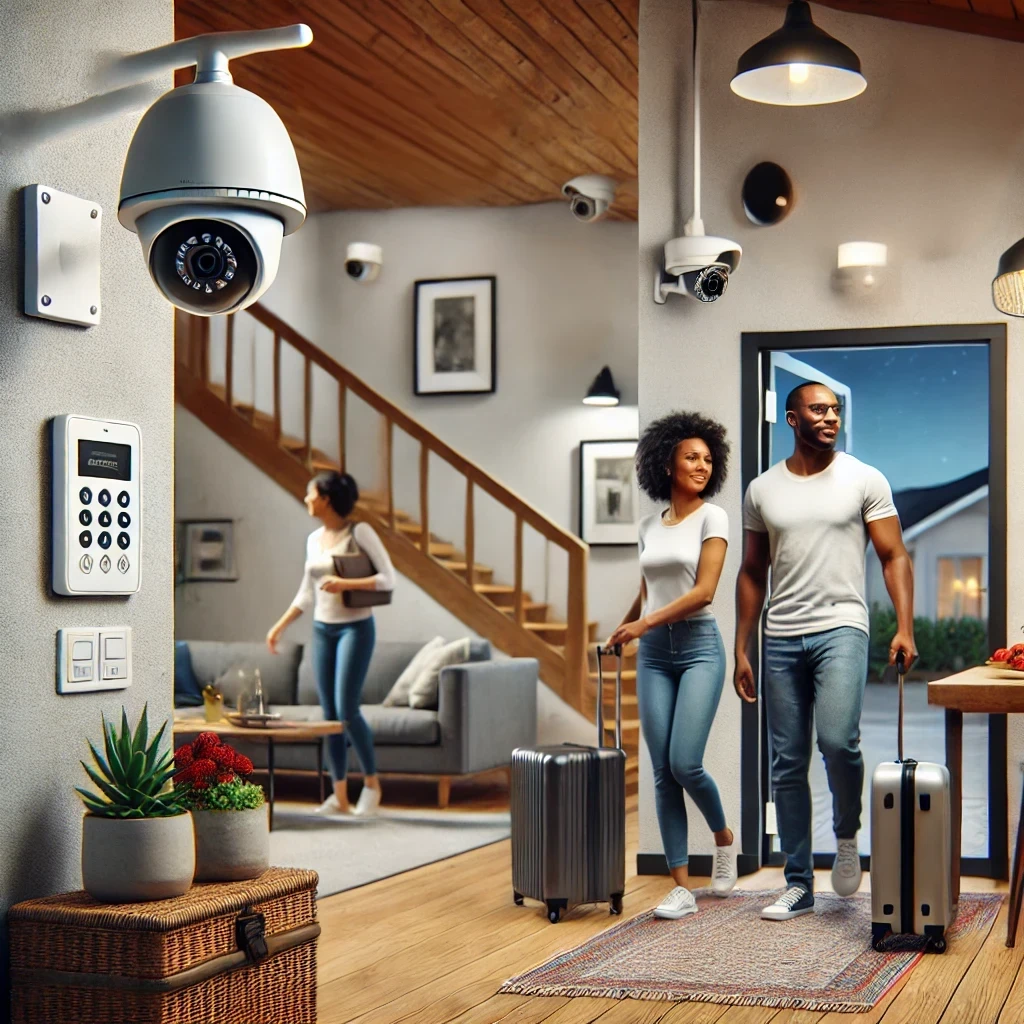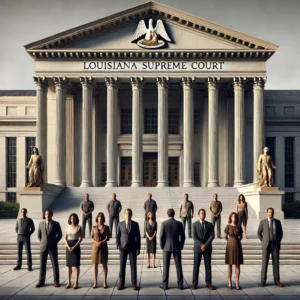Unveiling the Scope of Airbnb’s Hidden Camera Problem and Its Impact on Guest Safety
In a shocking revelation that has sent ripples through the short-term rental industry, an Airbnb representative disclosed during a court-ordered deposition that the company has received tens of thousands of customer support tickets related to surveillance devices over the past decade. This admission has not only shed light on a pervasive privacy issue plaguing the industry. Still, it has also raised serious questions about Airbnb’s ability to protect its guests from hidden cameras and other invasive surveillance tactics. As the company continues to dominate the market, the implications of this disclosure reach far beyond individual incidents, pointing to a systemic failure in safeguarding user privacy.
5 Key Points
- Airbnb has generated 35,000 customer support tickets for surveillance devices in the last decade.
- The company doesn’t routinely notify law enforcement when guests complain about hidden cameras, even when children are involved.
- Airbnb’s background checks and identity verification processes come with significant limitations.
- Victims of hidden camera incidents report long-term trauma and fear of their private moments becoming public.
- Airbnb has consistently fought against regulations that could improve guest safety and privacy.
The Alarming Scale of Hidden Camera Incidents
The court-ordered deposition revealing 35,000 customer support tickets related to surveillance devices over a decade provides an unprecedented glimpse into the scale of Airbnb’s hidden camera problem. This startling figure suggests that privacy violations within Airbnb rentals are far from isolated incidents. Instead, they represent a persistent and widespread issue that has affected thousands of guests across the platform’s global network of properties.
While Airbnb attempted to downplay this figure by suggesting some complaints might be innocuous, such as malfunctioning doorbell cameras, the accounts of former employees paint a starkly different picture. Many ex-Airbnb staff members who handled safety issues or fielded security concerns reported that hidden camera complaints were among the most common and severe issues they encountered. This discrepancy between Airbnb’s public stance and the experiences of its former employees raises critical questions about the company’s transparency and willingness to acknowledge the full extent of the privacy violations occurring on its platform.
The sheer number of complaints indicates a systemic issue beyond isolated incidents, suggesting a need for more robust preventive measures and stricter enforcement of privacy policies. It also highlights the potential scale of unreported incidents, as many guests may need to be made aware of hidden cameras in their rentals or may choose not to report their discoveries. This underreporting could mean that the number of privacy violations is significantly higher than the alarming figure disclosed.
Airbnb’s Questionable Response to Hidden Camera Complaints
One of the most troubling aspects of Airbnb’s handling of hidden camera incidents is its policy regarding law enforcement notification. According to the deposition, Airbnb does not routinely inform law enforcement when guests complain about hidden cameras, even in cases involving children. This approach has drawn sharp criticism from law enforcement experts, who argue that it could severely hinder criminal investigations by giving suspects time to destroy evidence.
Instead of immediately involving authorities, Airbnb often contacts hosts about complaints as part of internal inquiries. This practice potentially compromises criminal investigations and raises serious ethical concerns about prioritizing internal processes over guest safety and legal obligations. By delaying or avoiding law enforcement involvement, Airbnb may inadvertently protect hosts who have committed severe privacy violations, potentially allowing them to continue their behavior with other guests.
The company’s reluctance to involve law enforcement promptly could be seen as an attempt to contain incidents and avoid negative publicity, potentially at the expense of justice for victims. This approach also raises questions about Airbnb’s priorities: does the company place more emphasis on protecting its brand image and market share than on ensuring the safety and privacy of its users? The implications of this policy extend beyond individual cases, potentially creating an environment where privacy violators feel they can act with impunity.
The Limitations of Airbnb’s Safety Measures
While Airbnb touts its trust and safety policies as industry-leading, including background checks on US-based hosts and guests, a closer examination reveals significant limitations to these measures. The company’s website explicitly warns users not to rely on its background checks to identify all past criminal convictions, sex offender registrations, or other red flags. This caveat effectively shifts the burden of safety onto the guests, requiring them to exercise additional caution despite the presumed protections offered by the platform.
Moreover, even when Airbnb discovers a user has a criminal background, convictions for serious crimes such as murder, terrorism, rape, or child molestation are not automatic disqualifiers under the company’s policy. This lenient approach to user vetting starkly contrasts the rigorous background checks and security measures employed by traditional hotels and other sectors of the hospitality industry.
These limitations in Airbnb’s safety measures highlight a critical disconnect between the company’s public assurances of guest safety and the reality of its policies. The gaps in background checks and identity verification processes leave guests potentially exposed to hosts with criminal histories, including those convicted of violent or sexual offenses. This disparity underscores the need for more comprehensive and stringent vetting processes to protect guests from potential harm.
Furthermore, while efficient, technological solutions and algorithmic vetting may not be sufficient to address the complex human elements involved in ensuring guest safety. The nuances of criminal history, the potential for identity fraud, and the evolving nature of criminal behavior all present challenges that Airbnb’s current systems may not be equipped to handle adequately.
The Long-lasting Impact on Victims
The consequences of hidden camera incidents extend far beyond the immediate violation of privacy, often resulting in profound and lasting psychological trauma for victims. Many individuals who have experienced such violations report ongoing feelings of vulnerability, paranoia, and a persistent fear that their most intimate moments may become public without their knowledge or consent. This constant state of anxiety can have severe impacts on victims’ mental health, relationships, and overall quality of life.
The psychological impact of knowing that one’s private activities have been recorded and potentially shared can be devastating, leading to a range of emotional and behavioral changes. Victims often report:
- Increased anxiety and hypervigilance in public and private spaces
- Difficulty trusting others, particularly in accommodation settings
- Feelings of shame, embarrassment, and self-blame
- Disrupted sleep patterns and nightmares
- Avoidance of travel or staying in unfamiliar accommodations
Many victims express constant worry about the possibility of their images or those of their children appearing online. This fear is not unfounded, as digital content can be challenging to eradicate once it enters the online sphere. The potential for blackmail, harassment, or public humiliation adds another layer of stress to an already traumatic experience.
The lasting nature of these impacts highlights the severity of hidden camera violations and the urgent need for more effective prevention and support measures. It also underscores the importance of treating these incidents as privacy violations and serious crimes with real and long-lasting consequences for the victims.
Airbnb’s Resistance to Regulation and Accountability
Despite the clear need for improved safety measures and accountability, Airbnb has consistently fought against regulations that could enhance guest protection. The company’s use of Section 230 of the Communications Decency Act as a legal shield against liability for incidents occurring at its listings has been particularly controversial. This strategy allows Airbnb to distance itself from responsibility for guest safety and privacy, arguing that it merely provides a platform for hosts and guests to connect.
This legal approach has far-reaching implications for guest safety and recourse in cases of privacy violations. By positioning itself as a neutral platform rather than a service provider, Airbnb limits its legal liability and potentially reduces its incentive to implement more stringent safety measures. This stance has frustrated both victims seeking justice and lawmakers attempting to regulate the industry more effectively.
Airbnb’s resistance to regulation extends beyond legal defenses. The company has actively opposed local and national efforts to implement stricter oversight of the short-term rental industry. This opposition includes:
- Filing lawsuits against cities attempting to enforce registration requirements
- Lobbying against legislation that would impose more stringent safety standards
- Resisting calls for more transparent data sharing about incidents on its platform
- Pushing back against efforts to limit the proliferation of short-term rentals in residential areas
By prioritizing its business interests over comprehensive safety regulations, Airbnb may inadvertently perpetuate an environment where privacy violations can occur with limited consequences for the platform. This approach not only potentially endangers guests but also complicates efforts by local authorities to manage the impact of short-term rentals on their communities.
The company’s resistance to regulation highlights a broader issue within the tech industry: the tension between rapid innovation and adequate user safeguards. As platforms like Airbnb continue to disrupt traditional industries, there is an increasing need for regulatory frameworks to keep pace with technological advancements while ensuring user safety and privacy.
The hidden camera crisis facing Airbnb reveals a troubling gap between the company’s public image as a trustworthy platform for unique travel experiences and the reality of its ability to protect guest privacy. Addressing these systemic failures as the short-term rental industry grows becomes increasingly urgent. Meaningful change will require a combination of stricter internal policies, improved cooperation with law enforcement, and a willingness to embrace regulations prioritizing guest safety over unchecked growth.
FAQ
Q. How common are hidden camera incidents in Airbnb rentals?
A. Airbnb claims such incidents are rare. However, the company has received tens of thousands of customer support tickets for surveillance devices over the past decade, indicating a significant and persistent problem.
Q. Does Airbnb notify law enforcement when a guest reports a hidden camera?
A. According to the court deposition, Airbnb does not routinely notify law enforcement when guests complain about hidden cameras, even in cases involving children. Law enforcement experts have criticized this policy.
Q. How effective are Airbnb’s background checks on hosts and guests?
A. Airbnb’s background checks have significant limitations. The company warns users not to rely on these checks to identify all criminal convictions or other red flags, and even severe criminal convictions are not automatic disqualifiers for hosts.
Q. What are the long-term effects on victims of hidden camera incidents?
A. Victims often report experiencing long-term trauma, paranoia and fear that their private moments may become public. The psychological impact can be severe and long-lasting.
Q. How has Airbnb responded to attempts to regulate the short-term rental industry?
A. Airbnb has consistently fought against regulations, often using legal defenses like Section 230 of the Communications Decency Act to avoid liability. The company has also opposed local and national efforts to implement stricter industry oversight.
Citations:
Chapman, I., de Puy Kamp, M., & Ash, A. (2024, July 9). No room for privacy: How Airbnb fails to protect guests from hidden cameras. CNN. https://www.cnn.com/2024/07/09/business/airbnb-hidden-camera-invs/index.html







